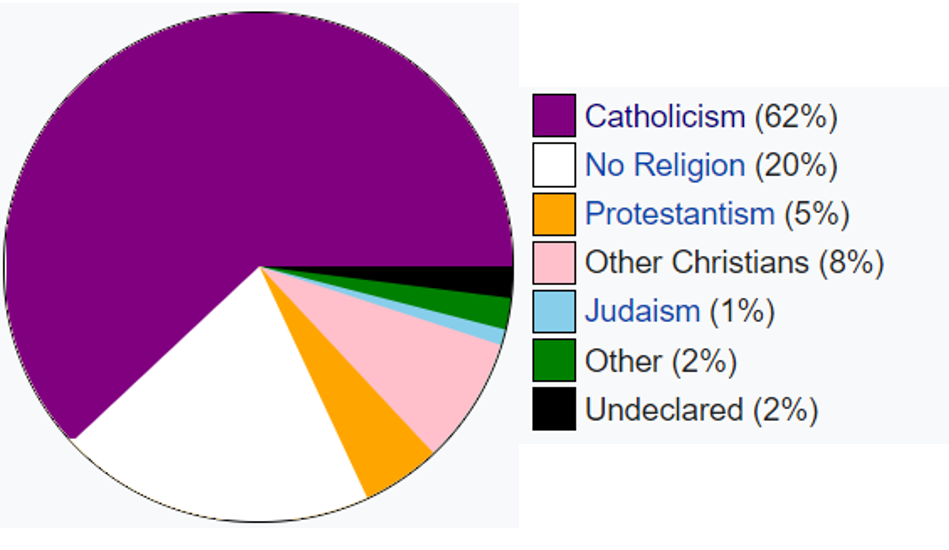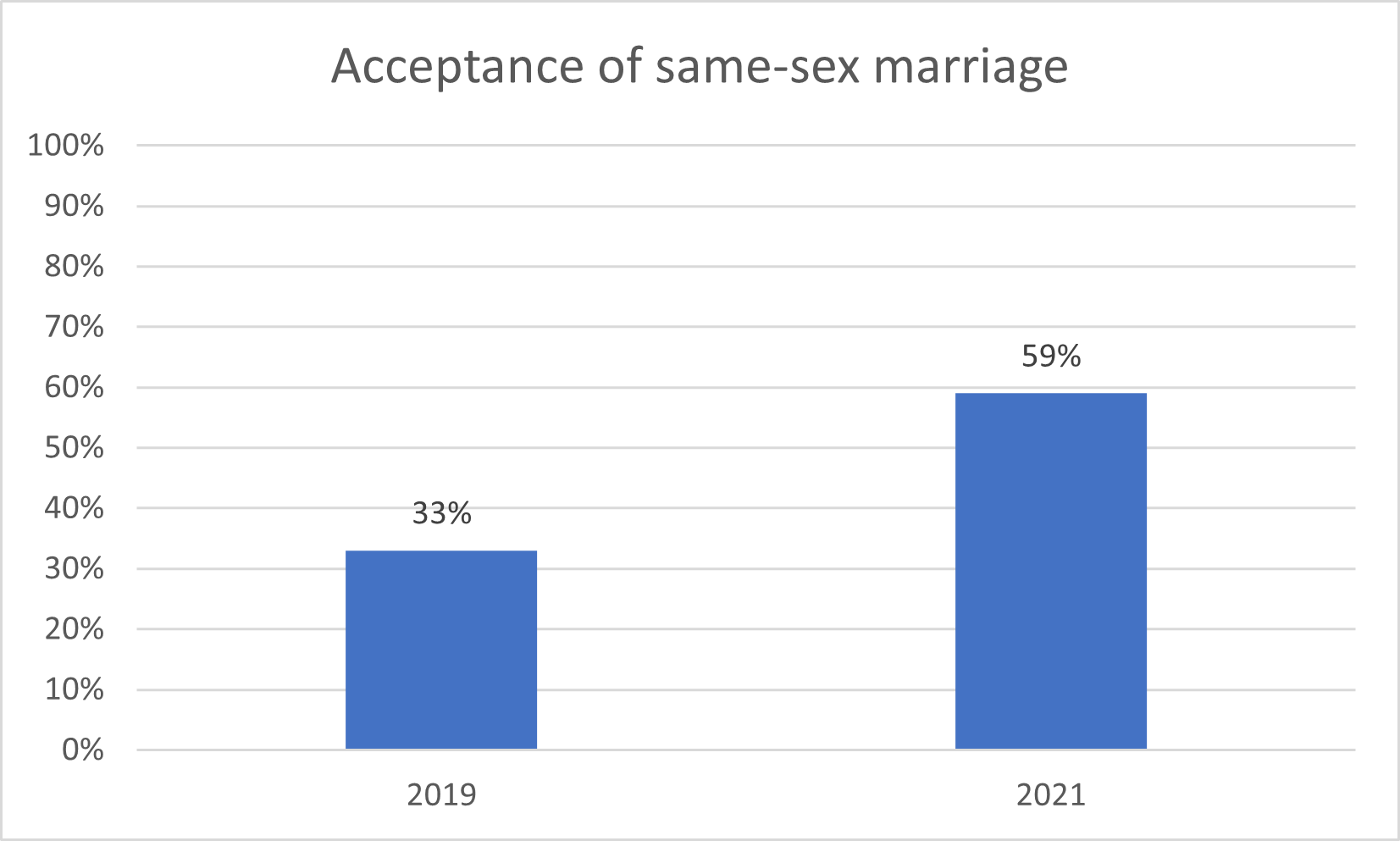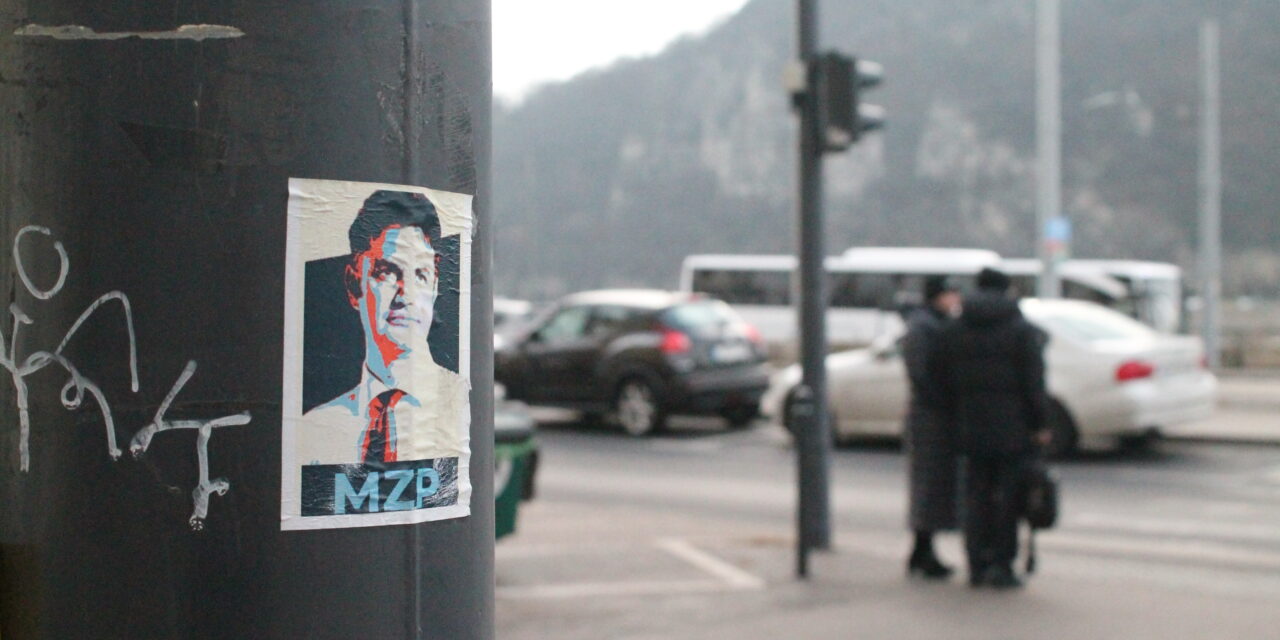With the national 2022 elections of Hungary coming up, it seems that prime-minister Victor Orbán might have a serious competitor. Chosen as the leader of a united opposition party, Péter Márki-Zay has stepped out of small countryside city and into the light. Though he too is conservative, with strong Christian values, he campaigns for equal rights for minorities: even the LGBQTQI+ population. Do his opinions resonate with his voters and community?
Identity
In an online press call late December, Márki-Zay invited journalists from all over the world to ask him questions about his campaign, his identity as a Christian leader and his plans for the future of Hungary. A mere week before that, he expressed during a televised interview that though he identifies strongly as a Christian, he also believes in same-sex marriage and other equal rights for LGBTQI+ people in Hungary. Surprising, as Christians usually oppose same-sex marriage rather than support it.
“To simplify it, I am right-wing in both senses, ideologically and economically. But I am liberal in my approach to foreign issues, social security and gay rights. I am very open to these things, as a politician,” Márki-Zay explains during the call. “But my national identity and my Christianity are very important to me too.”
Church and state

Over half of the Hungarian population is Catholic, like Márki-Zay.
Apart from running his campaign, Péter Márki-Zay is also major of his hometown Hódmezővásárhely. There he is part of a tight Christian community. “After I made the statement about supporting same-sex marriage, I received very mixed messages from my own Church community,” Márki-Zay says. “Especially pastors are worried. If at governmental level same-sex marriage is approved, then the church feels pressure to also approve of same-sex marriage. They will have a hard time explaining why same-sex marriage will still not be allowed within church.”
And most of the churches don’t approve of same-sex marriage. Pastor Osztie Zoltán, of the Inner City Parish Church says that within his community nobody supports same-sex marriage. “We follow the word of God: the Bible. And the Bible is very clear about this. A man shall not lie with another man the way he lies with a woman.”
The pastor continues. “I know there are gay people living in our society and I tolerate that, but I don’t respect their way of living. I would never allow it within my church and I believe they will eventually end up in Hell if they continue their lifestyles.” And with 62% percent of the population being Catholic, of half which actively practicing, it’s safe to say that more Christians share this view.
Enlarge

“Within my group of friends we don’t even discuss the possibility of having same-sex marriage within church.” Péter Márki-Zay
What about Márki-Zay himself? If he can be both ring-wing and support social security, he could also divide his support between state and church.
“Yes. I have also said I will work with the devil if it means I can end corruption,” Márki-Zay shrugs, “but all of this is a sensitive topic in my community and I think for a lot of other people too. I support same-sex marriage as a politician, in the secular state. But as a Catholic? No.”
Campaign
After his initial statement, critics believe Márki-Zay has only expressed his support for the LGBTQI+ community as a cunning trick to win more voters. Liberal commentator Attila Róvo thinks Márki-Zay cannot both be a progressive politician and a conservative Christian in terms of the queer community, migration and the right to abortion. Róvo thinks that this way Márki-Zay can win over religious voters who don’t agree with Fidesz (Orbán’s party) and non-religious voters.
Márki-Zay has experienced smear campaigns and false pretences of pedophilia since supporting same-sex marriage in the secular state. “We campaign both online and in person, with volunteers handing out flyers. But Fidesz has much more money to put into their online campaign and its obvious they’re using it to make me look bad,” Márki-Zay comments.
Support for the queer community
For the queer community, the general opinion already seemed to have changed a little before Márki-Zay’s statements. Together with Amnesty International, LGBTQI+ organisation Háttér Society published a representative poll last August detailing the social acceptance of LGBTQI+ people within a representative group of 1000 people.
Enlarge

Luca Dudits, board member and spokesperson of Háttér Society: “At the same time we have also seen a rise in hate crimes involving LGBTQI+ people in Hungary.” She however doesn’t believe that this reflects on the general acceptance of queer people. “I think the anti-propaganda law really showed a lot of people that gay people in Hungary are not respected. And with more people in Hungary being outspoken in support of the LGBTQI+ community, there is less opposition against gay couples and instead more support.”

More than 10.000 people took part in the Budapest Pride March in July, 2021.
The EU and European Commission have spoken out against this law and replied with an infringement procedure one week after the law was announced. “It really showed how serious the EU took this and the LGBTQI+ community here really felt supported,” Dudits explains. The fact that amongst his support for the LGBTQI+ community, Márki-Zay has also pledged to work closer together with the EU does make him a little more believable.
A fighting chance?
According to the polls of Zavecz Research, an independent research institute from Hungary the opposition Márki-Zay is leading still has to catch up with Viktor Orbán’s Fidesz. Márki-Zay’s party, MMM is made up of six opposition parties working together for the first time. Currently Fidesz is in de lead with 48% of the estimated votes and MMM a close second with 44%. Tactic or not, Márki-Zay does need the extra votes to win in April.




